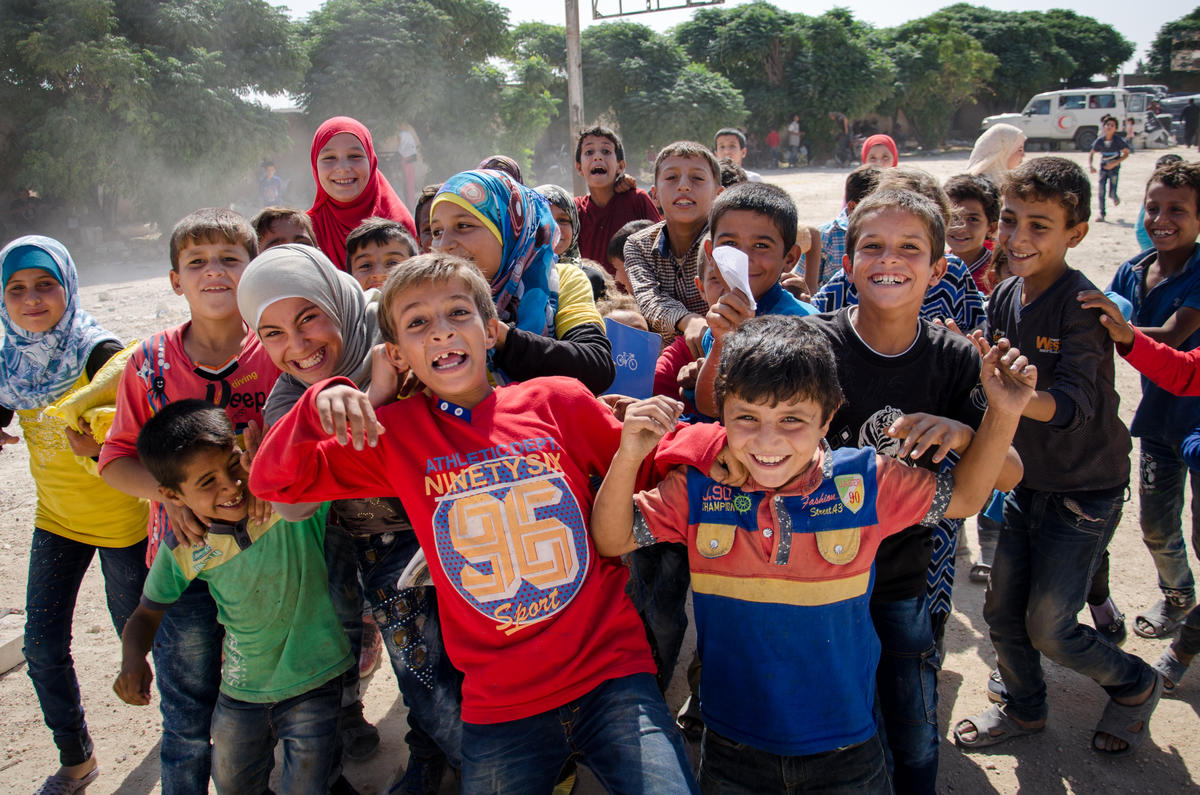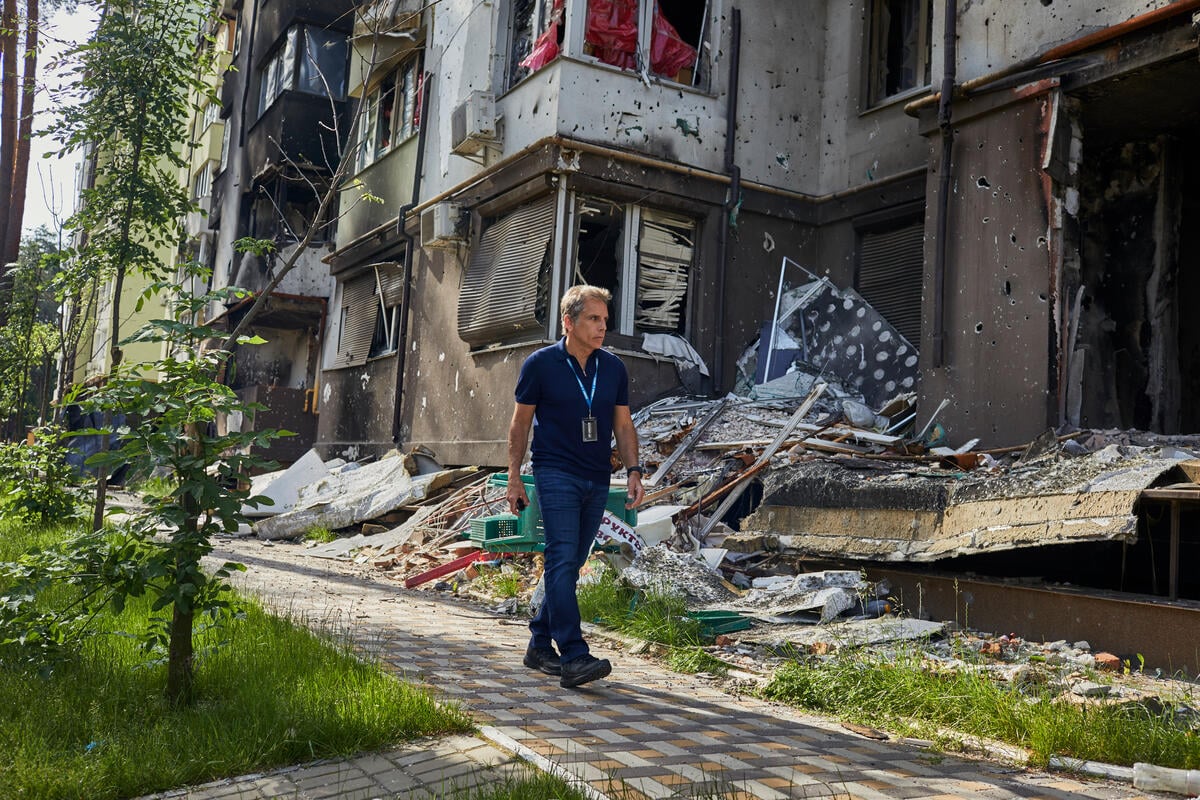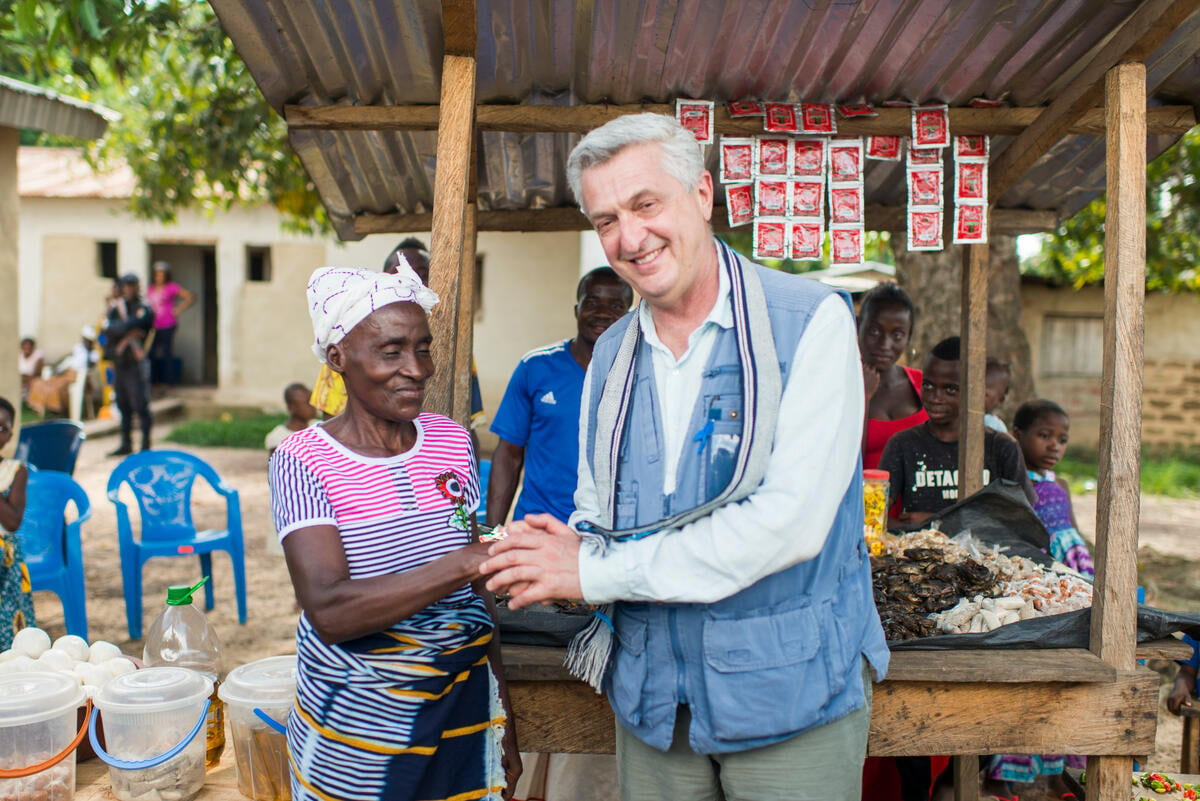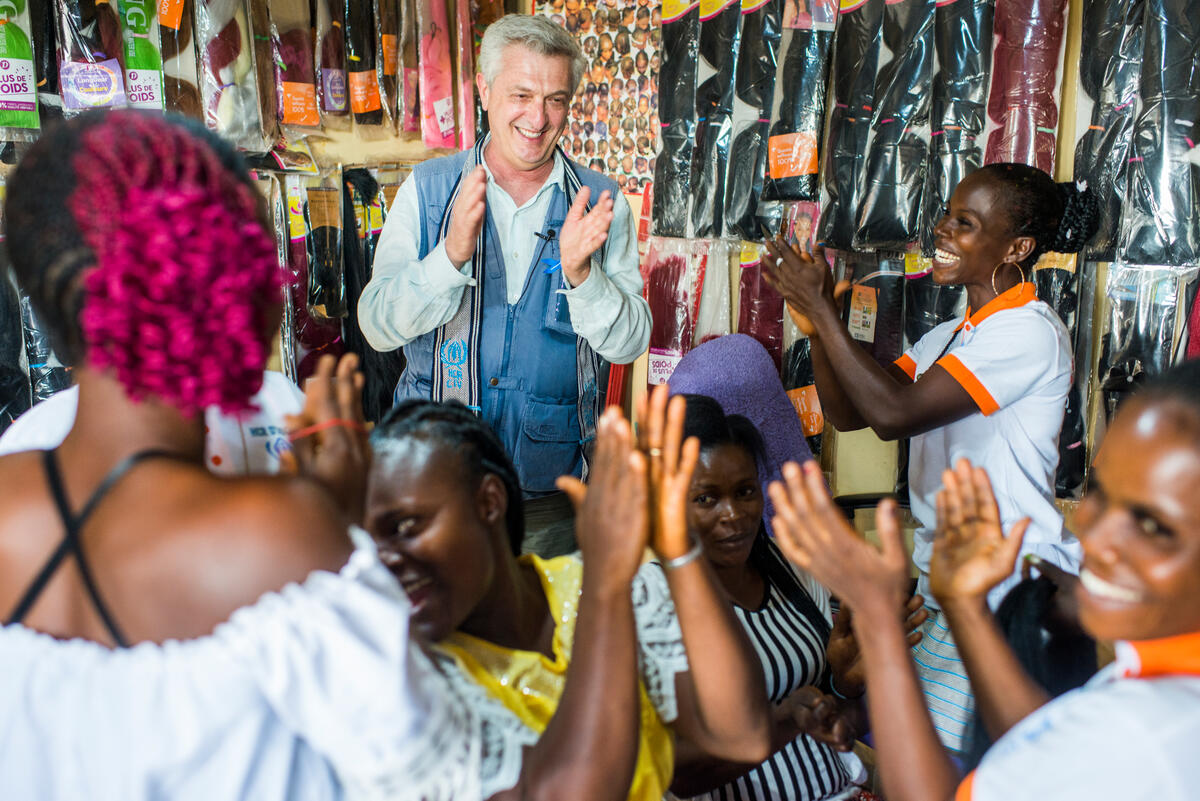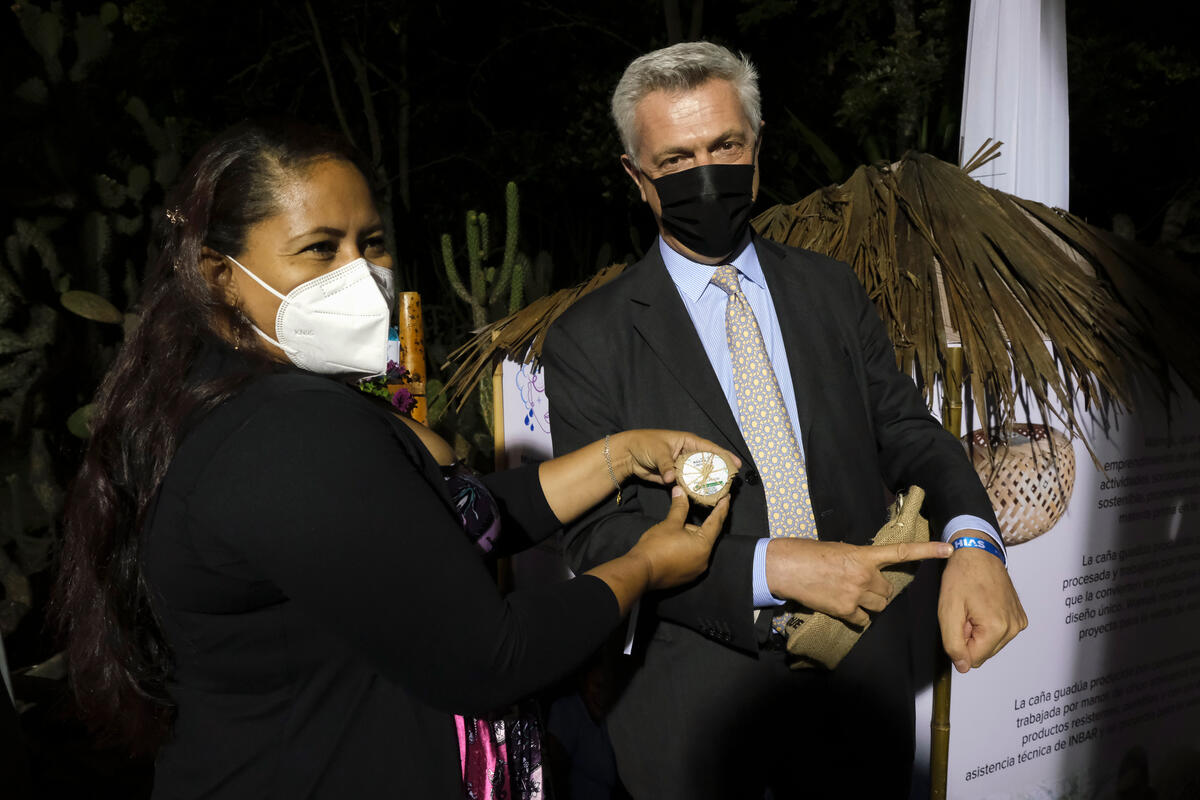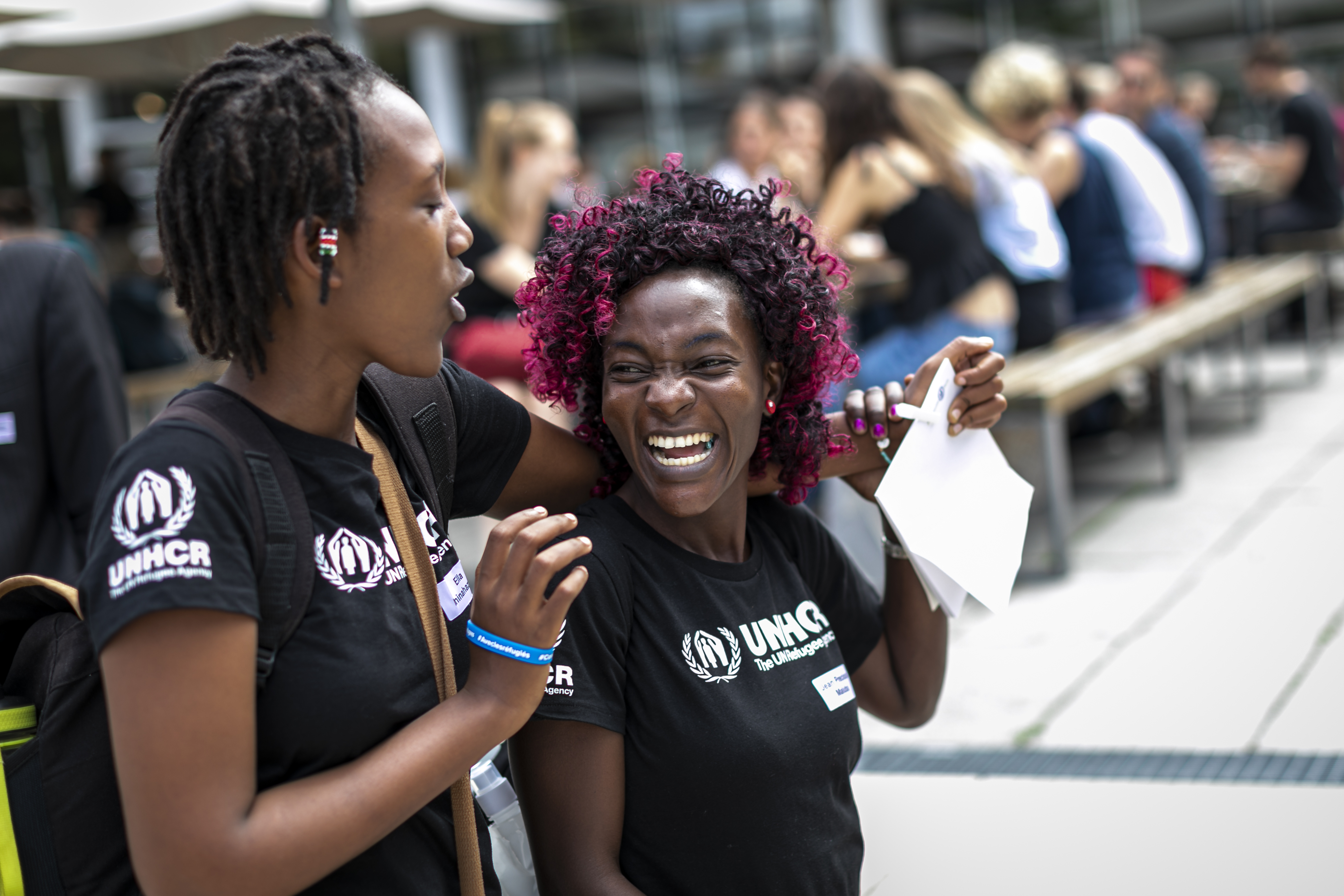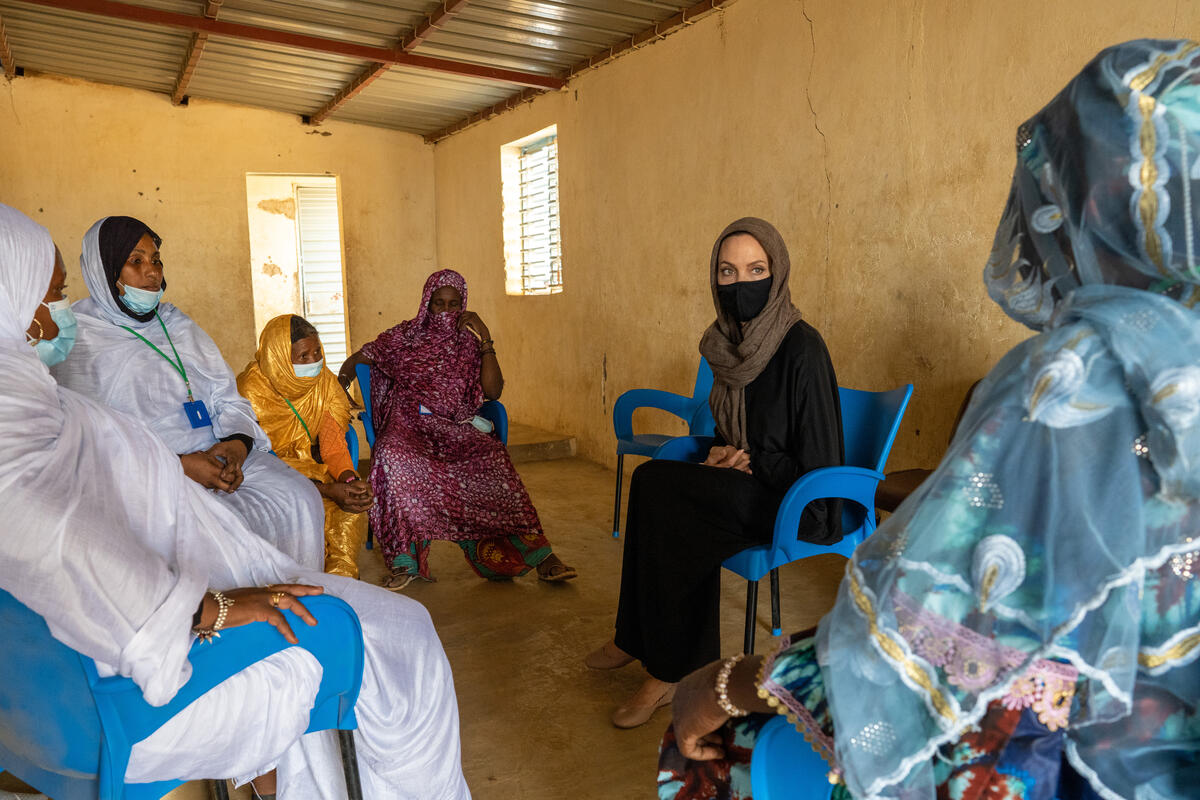Darfur's refugees mark World Refugee Day in Chad
Darfur's refugees mark World Refugee Day in Chad

FARCHANA, Chad, June 22 (UNHCR) - There's not a lot to celebrate in the desolate desert of eastern Chad, but for a few hours last weekend, thousands of Sudanese refugees found a reason to sing and dance on the occasion of World Refugee Day.
On Sunday, Farchana camp's 11,207 refugees played host to a group of high-level visitors that included Chadian government ministers (for Foreign Affairs, Agriculture, and Social Affairs, among others), local authorities in eastern Chad, as well as representatives of the United States and German embassies in the country.
"Farchana is a symbol for us. This is the first camp we opened on January 17 this year, this is a symbol of a successful relocation, this is also a symbol of future return," said UNHCR Representative in Chad, Alphonse Malanda.
All the visitors praised the Chadian population for their warm hospitality towards the refugees for the past year and a half.
The refugees organised different activities and performances, including traditional Massalit dances performed by women in colourful dresses and scarves together with their husbands. The Massalit are the main ethnic group in the camp. Refugee children also took part in a parade - singing traditional songs and holding banners of their school, "Ecole primaire du camp de Farchana", which has 3,188 students.
A group of young refugee men held a demonstration of traditional spears and "safrocs", sticks that look like wooden boomerangs that are used to kill game in the bush. In the afternoon, a soccer match pitted a refugee team against a Chadian team.
"To be a refugee is not a fatality," said Sebastien Apatita, who heads UNHCR's office in Adré and supervises Farchana and Breidjing camps. "On this special day, we are trying to give them back hope. Hope that they can stop being afraid, hope that their children can still have an education even though they are refugees, that they can start cultivating and take their cattle to graze. In short, hope that they can have a normal life until they can go back to their homes in Sudan."
Similar World Refugee Day activities took place in eastern Chad's Kounoungo, Iridimi and Goz-Amer camps.


